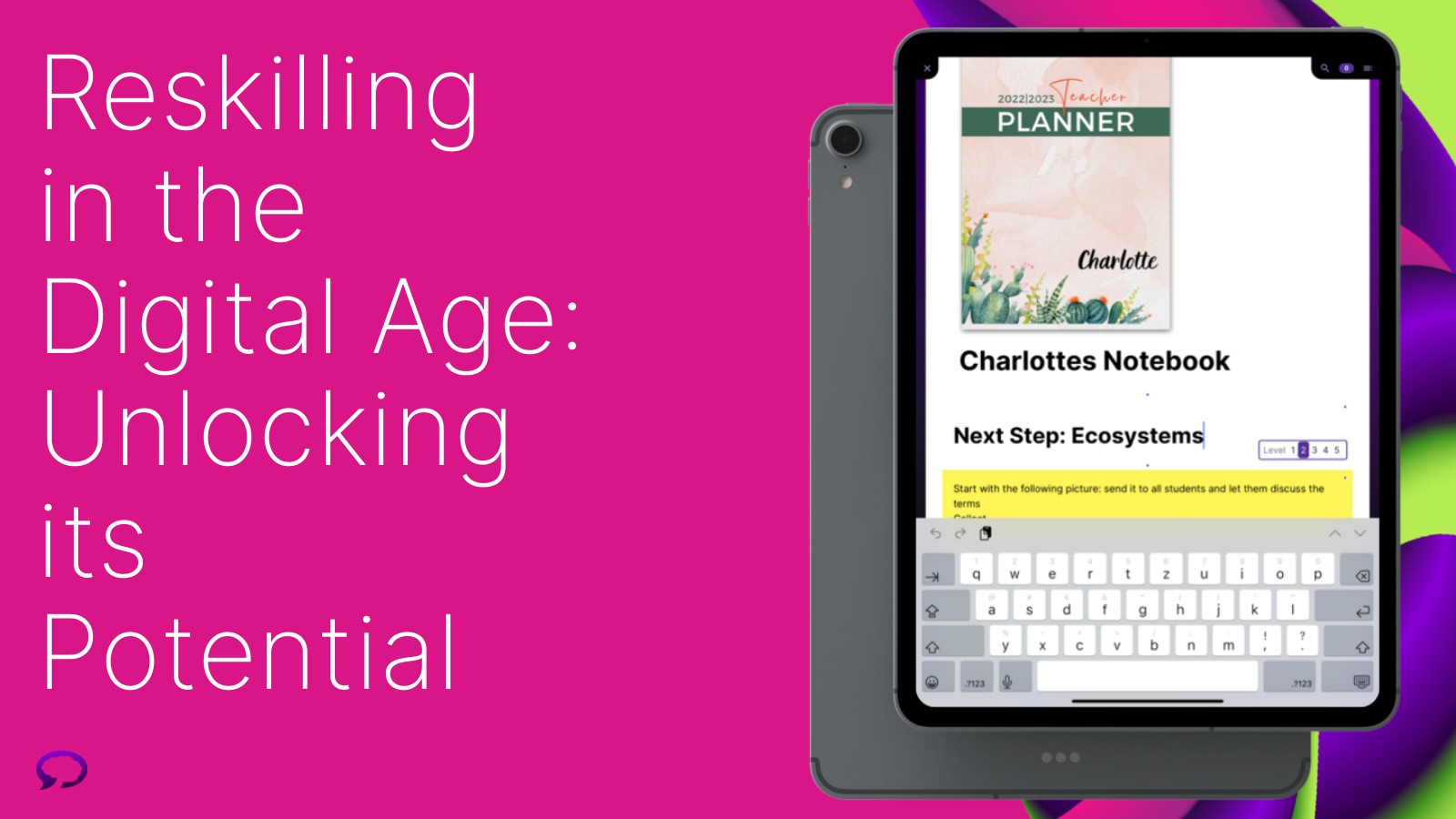
Introduction
In my role with Get More Brain, I regularly engage with managers and learning and development professionals. I have witnessed the rapid transformation of the business landscape due to digitalization. The turbulent state of the financial sector in Switzerland and the USA underscores the challenging times both organizations and individuals face. Companies work to ensure their staff have the necessary skills, while individuals strive to acquire new skills to stay relevant and competitive in the job market.
In several conversations with managers, I’ve discovered that they are increasingly requiring employees to acquire additional skills to fill the gaps in a reduced workforce. Additionally, employees want to learn additional skills to increase their value and importance to their current employers. This shift emphasizes the critical need for reskilling initiatives in today’s fast-paced business environment.
In my previous blogs, we explored the importance of personalized learning, the role of AI, and the impact of technology on the learning experience. Building on these themes, this blog focuses on reskilling. It focuses on the benefits, challenges, and the role of technology in facilitating the reskilling process for both staff and those seeking new opportunities.
What is Reskilling?
Reskilling is the process of equipping employees with new skills and knowledge to stay relevant and successful in the workplace. This strategy enables businesses to stay competitive and ensures employees are prepared for changing needs. This is especially true during times of economic uncertainty or industry disruption, which we are currently experiencing.
Benefits of Reskilling Employees:
Increased employee productivity: Providing employees with the new skills and knowledge they need to do their job better can increase workforce productivity.
Increased employee engagement: As discussed in a previous blog, personalized learning experiences can boost engagement. Similarly, reskilling can engage employees as they feel more valued when their employer invests in their professional development.
Improved employee retention: Investing in reskilling can reduce employee turnover, as employees are more likely to stay with a company that invests in their professional development.
Cost savings: Investing in reskilling can reduce costs, as businesses don’t need to hire new employees or pay for outside training.
Improved customer service: By reskilling employees, businesses can ensure high-quality customer service, as employees have the new skills and knowledge they need to better serve customers.
Reskilling benefits both businesses and employees. By investing in reskilling, businesses can provide employees with the opportunity to develop new skills, advance their careers, and increase job satisfaction, reducing turnover. Additionally, reskilling ensures that employees stay up-to-date with the latest industry trends, enabling them to better serve customers and contribute to the business’s success.
Challenges of Reskilling Employees:
Time: Training employees can be time-consuming, as employees need time to learn new skills and knowledge.
Resistance: Some employees may be resistant to reskilling, as they may feel that the training is unnecessary or not relevant to their job.
Lack of resources: Businesses may not have the resources or staff needed to reskill employees.
Lack of motivation: Employee motivation is key when reskilling, as employees need to be motivated to learn and apply the newly acquired skills and knowledge they have learned.
So, despite the benefits of reskilling, businesses face several challenges when implementing these initiatives. These include time constraints, employee resistance, resource limitations, and the need to ensure employee motivation and engagement throughout the process.
The Role of Technology in Reskilling Employees
Technology can play a significant role in reskilling employees. As explored in an earlier blog, AI and technology advancements streamline learning and make it more efficient. A particularly helpful example is Get More Brain, a learning solution that can help reskill employees due to its personalized approach, AI-driven tools that help learners become their own coach, and communication-based learning approach. By investing in technology like Get More Brain, organizations can create, deliver, and track training materials while managing and monitoring employee progress.
Reskilling in Times of Layoffs:
A recent CNN tracker, titled “2023 Layoff Tracker: The Latest on Which Companies Have Announced Job Cuts in the USA,” highlights the importance of reskilling for both employees who remain with their companies and those who have been let go due to layoffs. As organizations face the challenges of a dynamic business environment, equipping employees with new skills can boost their resilience. This makes them more adaptable and pivot in times of uncertainty.
Reskilling Amidst Technological Transformation:
The World Economic Forum predicts that by 2025, 50% of all employees will require reskilling due to rapid digital transformation sweeping across industries. By proactively investing in reskilling initiatives, organizations can support employees in adapting to new roles. In addition, they can contribute to a more robust and resilient economy during times of crisis. As we move further into the digital age, it becomes increasingly vital for businesses to prioritize reskilling, ensuring their workforce remains agile and well-equipped for the ever-evolving landscape.
Conclusion:
Reskilling has emerged as a crucial strategy for businesses and individuals alike. As we’ve seen, reskilling offers numerous benefits, including increased productivity, employee engagement, retention, cost savings, and improved customer service. However, it is essential to acknowledge and address the challenges associated with reskilling, such as time constraints, resistance, resource limitations, and motivation.
Technology, particularly solutions like Get More Brain, can play a significant role in overcoming these challenges and facilitating successful reskilling initiatives. By embracing innovative, AI-driven tools and personalized learning approaches, organizations can support their employees in adapting to changing roles and contribute to a more resilient economy during times of crisis.
Ultimately, reskilling is an ongoing journey that requires commitment, investment, and collaboration between businesses, employees, and technology providers. By prioritizing reskilling, we can empower individuals to unlock their potential. We can also build a more agile workforce and foster long-term success in the digital age. Together, let’s embrace reskilling opportunities and create a brighter future for all.
This post was first published on Medium.


